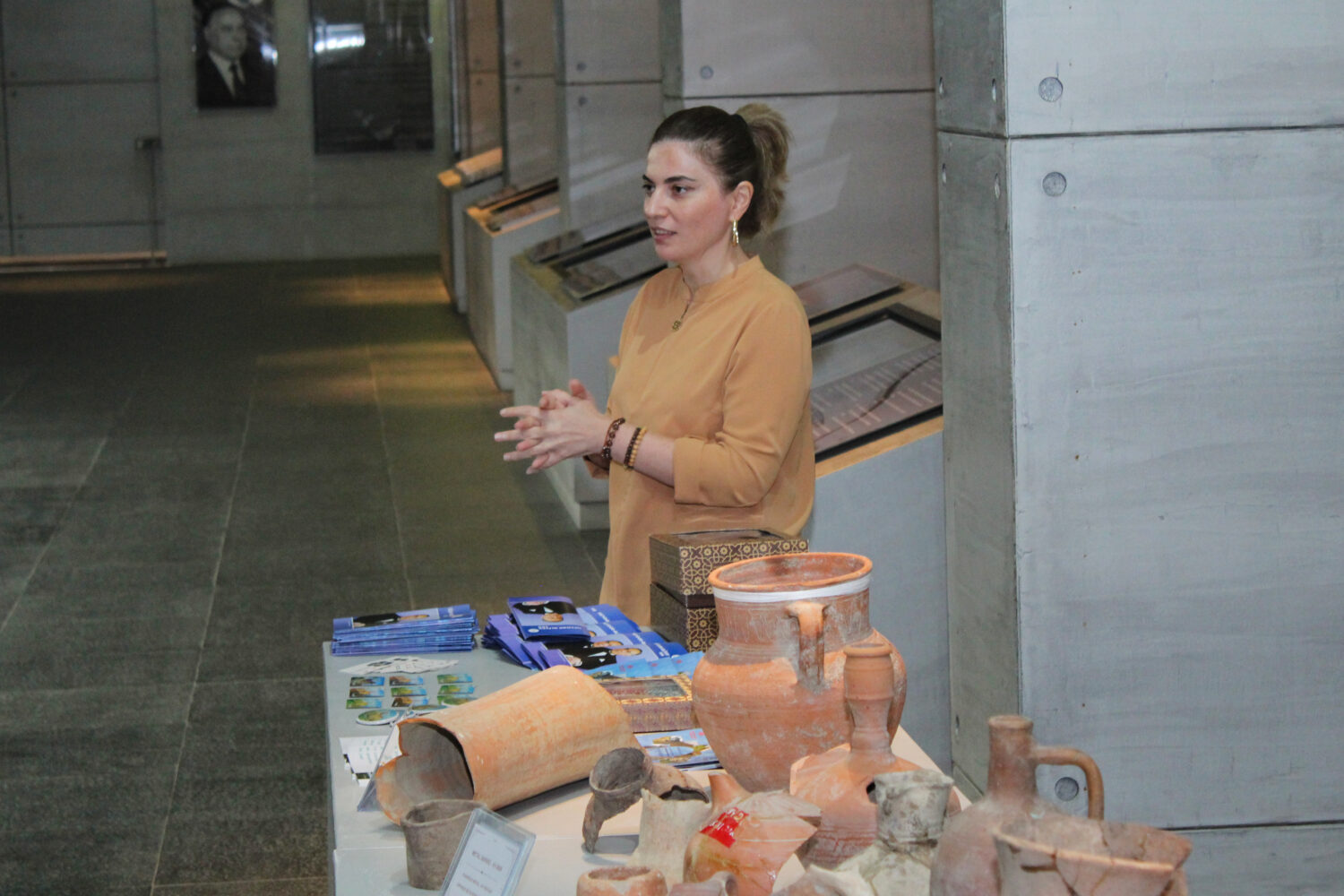


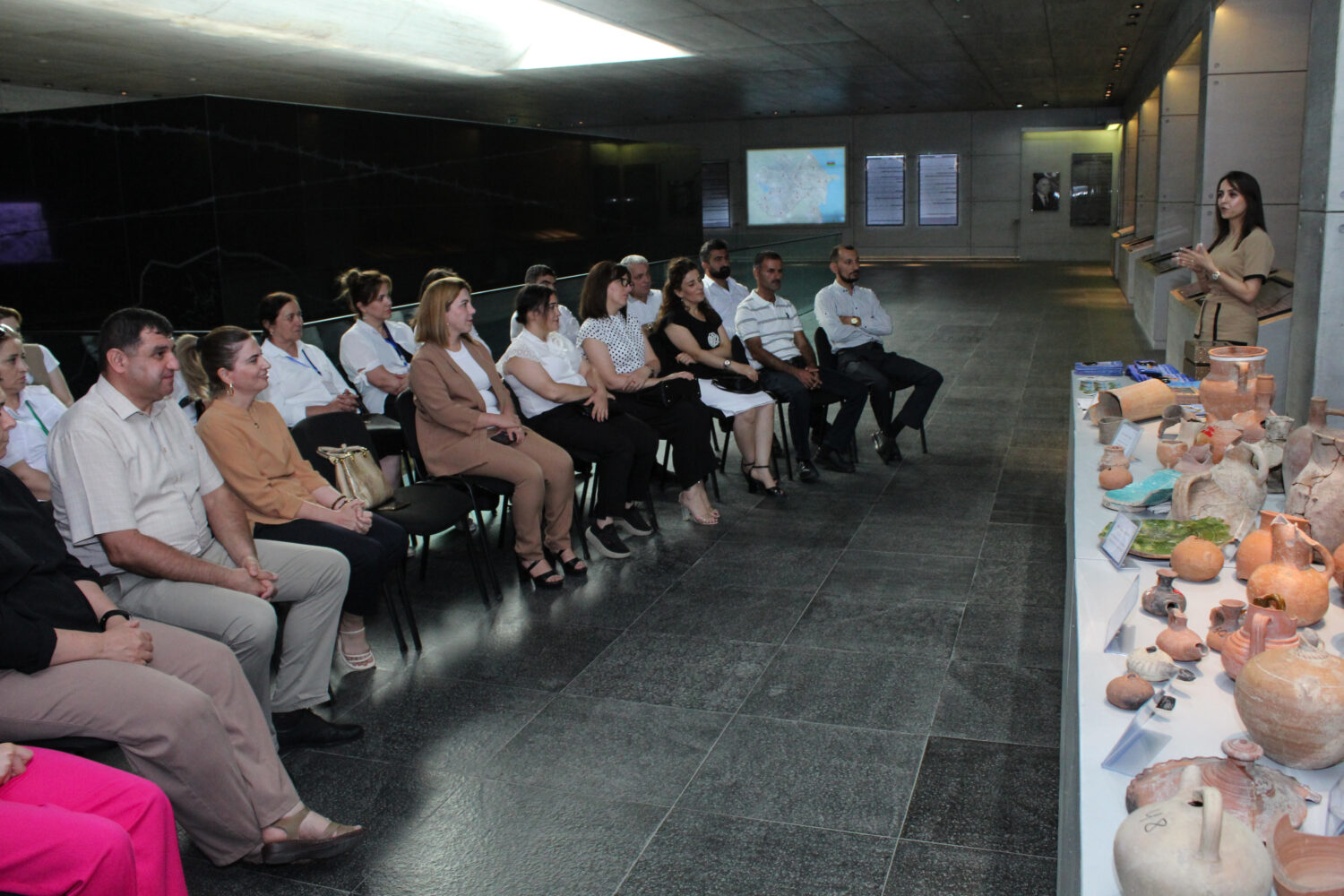
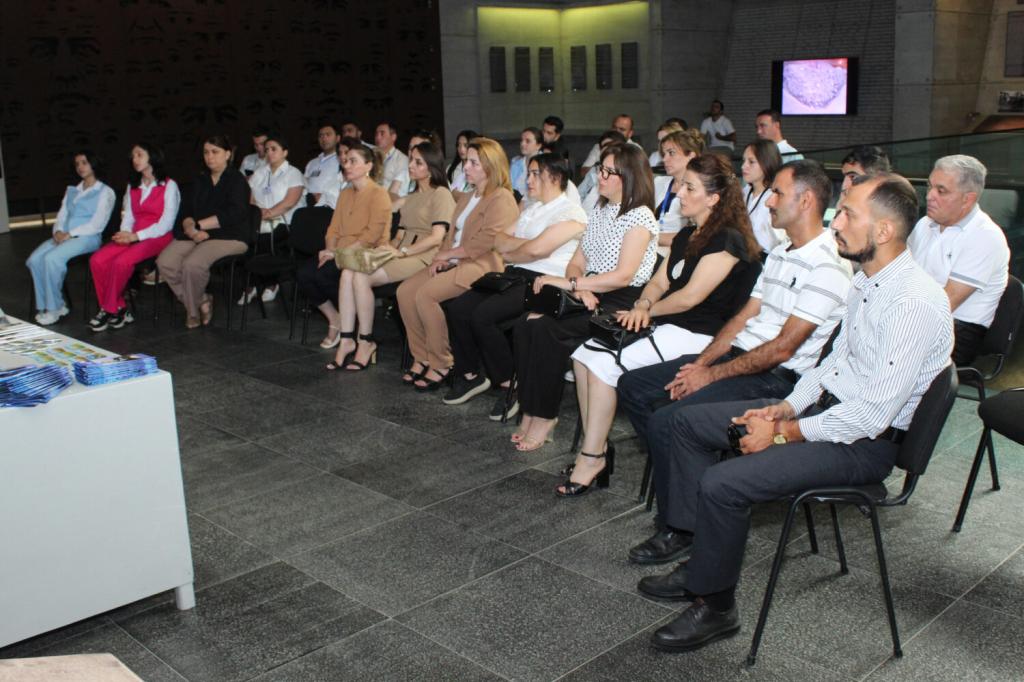
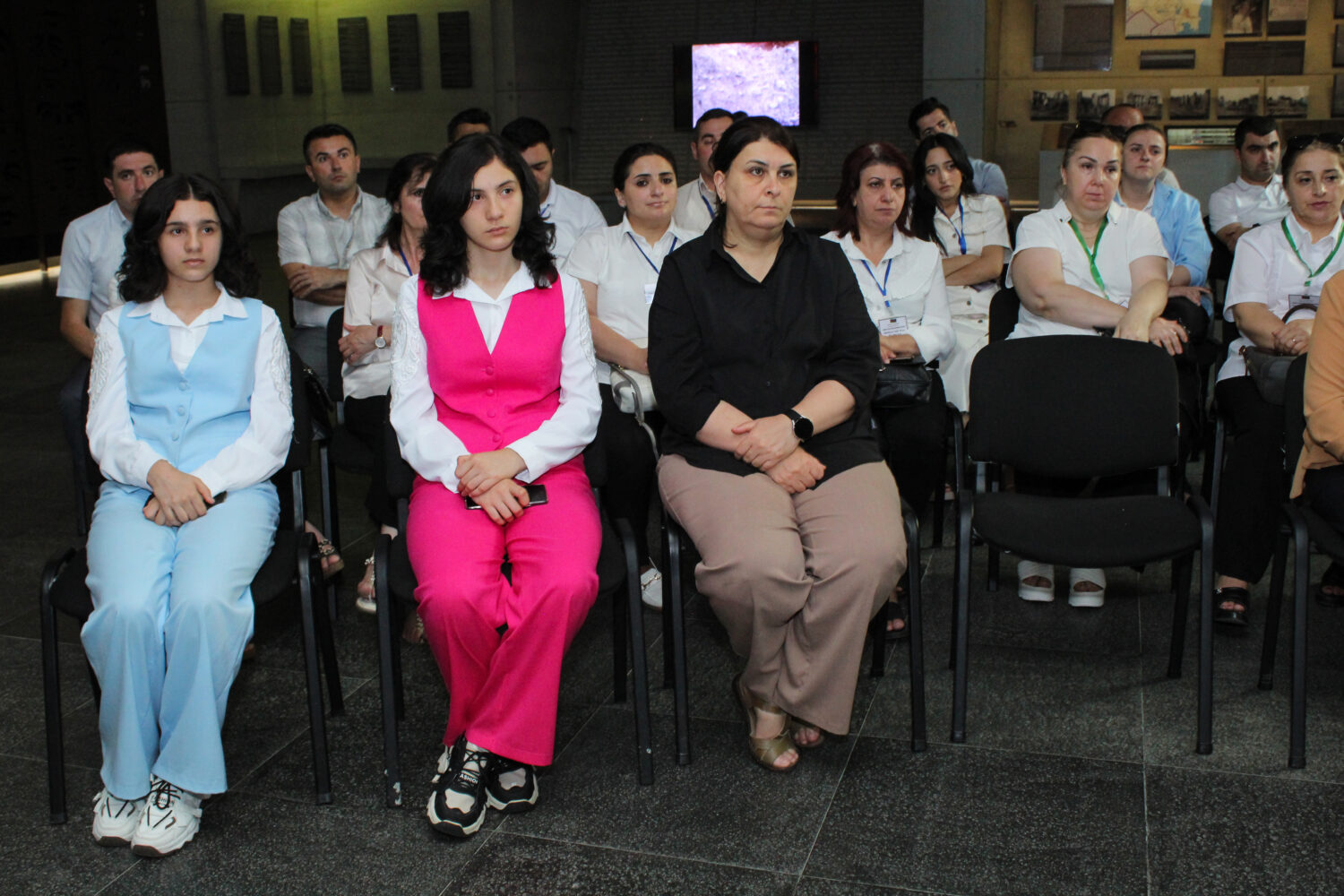
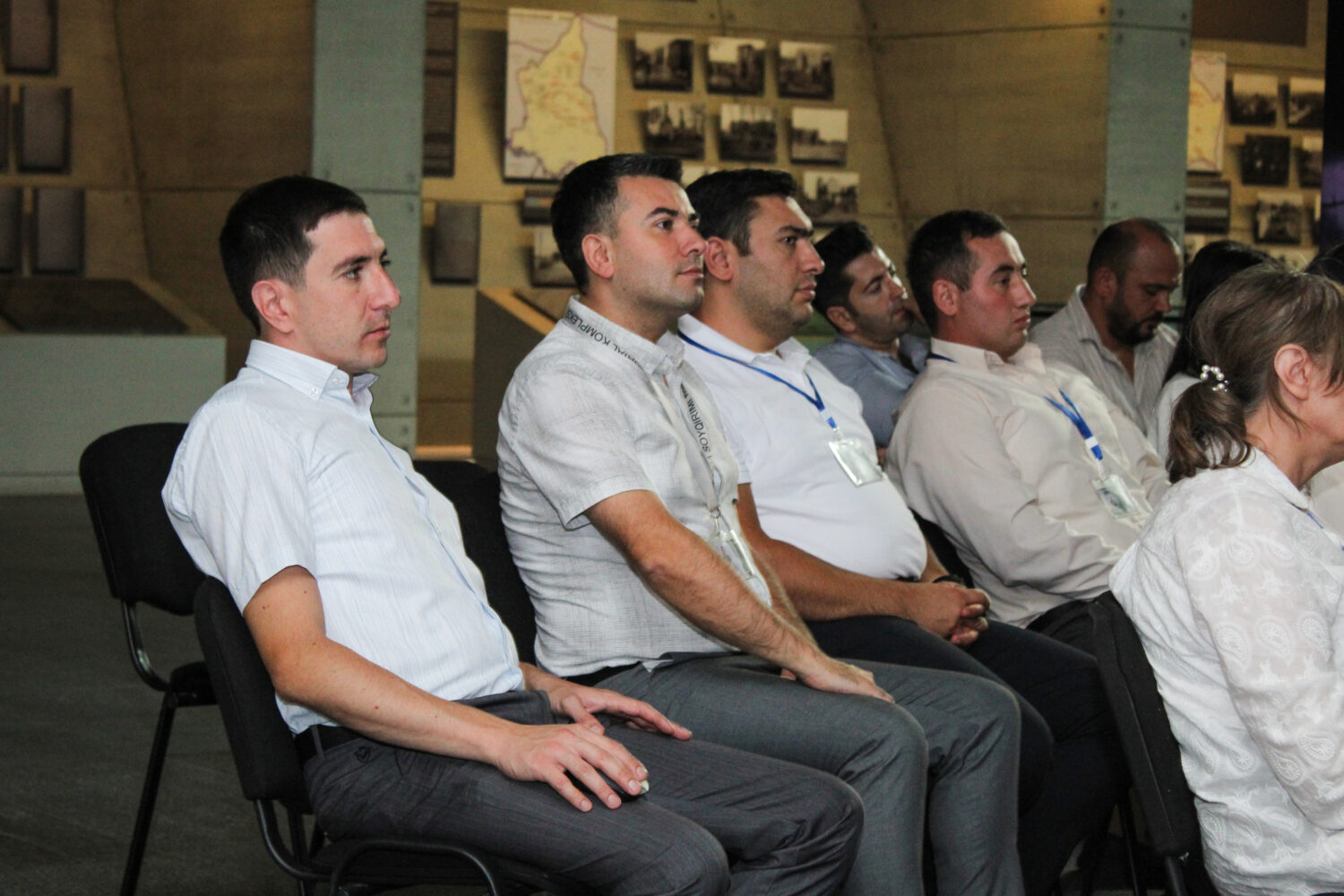

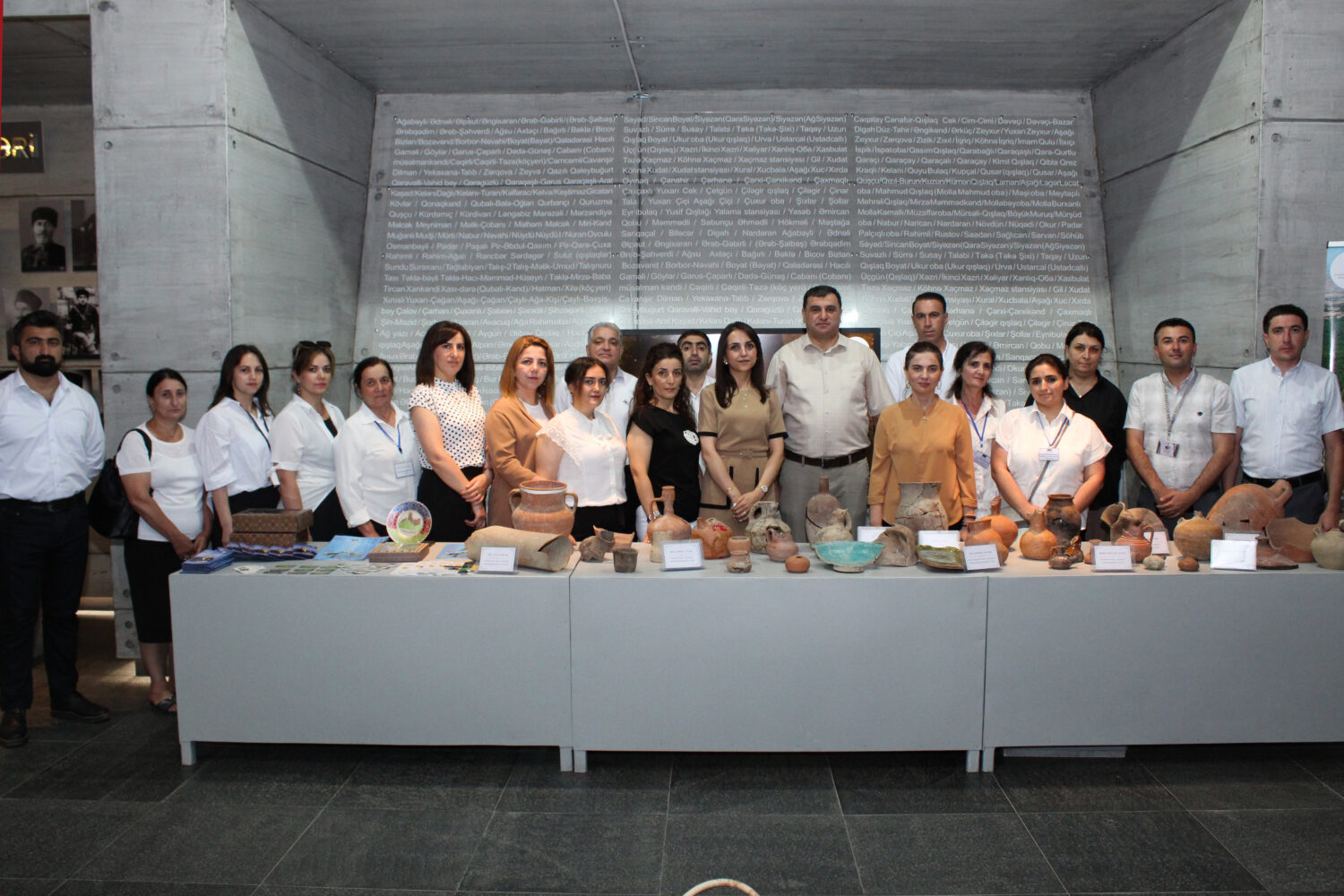
In the city of Quba, a master class titled “Ancient Shabran: Urban Culture of the Middle Ages in the Context of Archaeological Findings” was organized at the “Genocide Memorial Complex.” The session was led by Lachin Mustafayev, PhD in History, an archaeologist, and a lecturer at the Department of General History and History Teaching Technology at the Azerbaijan State Pedagogical University.
First, the event honored the memory of our martyrs who sacrificed their lives for our lands with a one-minute moment of silence. The event was then opened with a welcoming speech by Dr. Rəxşəndə Bayramova, who greeted the participants and provided detailed information about the events of 1918 and the activities of the Memorial Complex. Following this, Günel Pirquliyeva, Director of the “Chiraggala-Shabran” State Historical and Cultural Reserve, emphasized the importance of close cooperation between museums. She noted that on October 22, 2019, by the decree of President Ilham Aliyev, the “Chiraggala” and “Shabran” reserves were merged to form the “Chiraggala-Shabran” State Historical and Cultural Reserve. Referring to the exhibition of cultural artifacts, iron, and pottery products discovered among the remains of the city of Shabran, archaeologist Lachin Mustafayev gave a detailed presentation on Albanian culture and urban planning culture. He stated that the “Chiraggala-Shabran” reserve encompasses seven historical monuments, three of which are of global significance. The speaker emphasized that the history of every nation is also affirmed in the craftsmanship examples it creates. From the Stone Age to the present day, the examples of folk craftsmanship have evolved through various socio-economic formations. Items based on simple manual labor, such as household equipment, have later become cultural artifacts that provide insight into those eras. Pottery, considered one of these craftsmanship examples, is one of the oldest industries in Azerbaijan. It has not only preserved its significance but has also been recognized among the masterpieces of human culture. Archaeological research has confirmed that pottery is a legacy of the Neolithic period. The master class was attended by nearly 50 participants, including employees of history-related institutions from various regions, students, youth, and cultural workers.
It is worth noting that since August 1st, an exhibition related to the “Chiraggala-Shabran” State Historical and Cultural Reserve has been on display in the museum section of the “Genocide Memorial Complex” in the city of Quba.






